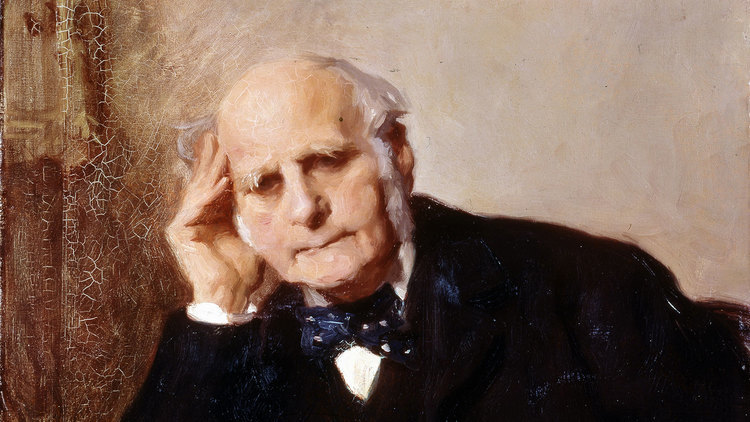
By Steve Sailer
05/09/2014
In response to my post below about how it’s increasingly difficult for contemporary intellectuals to remember accurately past views due to the perceived need to attribute all contemporary racial and sexual disparities to the malignity of historical attitudes, a commenter points to this 1873 letter from Francis Galton as germane to the question of what whites in the past thought about economic potential of East Asians.
Darwin’s half-cousin was, among much else, both a pioneering statistician and an explorer of Africa.
AFRICA FOR THE CHINESE.Francis Galton, letter to the Editor of The Times, June 5 1873.
TO THE EDITOR OF THE TIMES.
Sir, — … I am desirous of availing myself of the opportunity to ventilate some speculations of my own, which you may, perhaps, consider of sufficient interest to deserve publication in the Times. My proposal is to make the encouragement of the Chinese settlements at one or more suitable places on the East Coast of Africa a part of our national policy, in the belief that the Chinese immigrants would not only maintain their position, but that they would multiply and their descendants supplant the inferior Negro race. I should expect the large part of the African seaboard, now sparsely occupied by lazy, palavering savages living under the nominal sovereignty of the Zanzibar, or Portugal, might in a few years be tenanted by industrious, order loving Chinese, living either as a semi-detached dependency of China, or else in perfect freedom under their own law. In the latter case they would be similar to that of the inhabitants of Liberia, in West Africa, the territory which was purchased 50 years ago and set apart as an independent State for the reception of freed negroes from America.
The opinion of the public on the real worth of the Negro race has halted between the extreme views which have been long and loudly proclaimed. … The Chinaman is a being of another kind, who is endowed with a remarkable aptitude for a high material civilization. He is seen to the least advantage in his own country, where a temporary dark age still prevails, which has not sapped the genius of the race, though it has stunted the development of each member of it by the rigid enforcement of an effete system of classical education which treats originality as a social crime. All the bad parts of his character, as his lying and servility, spring from timidity due to an education that has cowed him, and no treatment is better calculated to remedy that evil than location in a free settlement.
The natural capacity of the Chinaman shows itself by the success with which, notwithstanding his timidity, he competes with strangers, wherever he may reside. The Chinese emigrants possess an extraordinary instinct for political and social organization; they contrive to establish for themselves a police and internal government, and they give no trouble to their rulers so long as they are left to manage those matters by themselves. They are good-tempered, frugal, industrious, saving, commercially inclined, and extraordinarily prolific. They thrive in all countries, the natives of the Southern provinces being perfectly able to labor and multiply in the hottest climates. Of all known varieties or mankind there is none so appropriate as the Chinaman to become the future occupant of the enormous regions which lie between the tropics, whose extent is far more vast than it appears, from the cramped manner in which those latitudes are pictured in the ordinary maps of the world. But take a globe and examine it, and consider the huge but poorly-peopled bulk of Africa, by whose side the areas of India and of China look insignificant, and think what a field lies there for the development of a suitable race. The Hindoo cannot fulfil the required conditions nearly as well as the Chinaman, for he is inferior to him in strength, industry, aptitude for saving, business habits, and prolific power.
In reality, South Asians did migrate to East Africa in not insignificant numbers, and took over much of the commercial life of Kenya, much to the outrage of President Obama’s father and Kenyan half-sister Auma.
The Arab is little more than an eater up of other men’s produce; he is a destroyer rather than a creator, and he is unprolific.
Six decades later Evelyn Waugh wrote two spectacular novels about his trips to East Africa, Black Mischief and Scoop, along with much travel journalism. Unlike the progressive reformer Galton, the reactionary Waugh greatly admired the Arabs in East Africa and Yemen for their aristocratic indolence and lack of economic dynamism, comparing their decadent ennui favorably to the enterprise of the Indians who got on his snobbish nerves.
Anyway, 140 years later, Chinese colonization of Africa is taking off, with over 1 million in Africa today. Of course, Africans are also showing up in China.
The future shall be full of interest.
This is a content archive of VDARE.com, which Letitia James forced off of the Internet using lawfare.